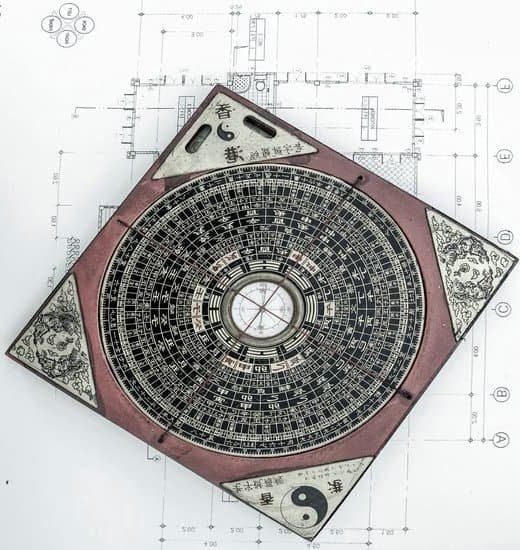Are you looking to create a peaceful and harmonious sanctuary in your bedroom? Incorporating feng shui principles can help achieve just that. In this article, we will explore various feng shui tips for the bedroom to promote relaxation, better sleep, and overall well-being.
Feng shui is an ancient Chinese practice that focuses on creating balance and harmony in our living spaces by arranging furniture, colors, and elements in a specific way. When it comes to the bedroom, the energy flow or chi should be optimized to ensure a restful environment conducive to rejuvenation.
The importance of feng shui in the bedroom cannot be overstated. A well-designed feng shui bedroom can improve the quality of our sleep, reduce stress levels, and enhance overall happiness and well-being. By following simple guidelines and incorporating key feng shui principles, you can transform your bedroom into a peaceful retreat where you can unwind and recharge after a long day.
Importance of Feng Shui in the Bedroom
Feng Shui is an ancient Chinese practice that focuses on the harmonious arrangement of elements in a space to promote positive energy flow. When it comes to the bedroom, applying Feng Shui principles is essential for creating a serene and conducive environment for rest and relaxation. The right balance of energy in the bedroom can help improve sleep quality, reduce stress, and enhance overall well-being.
Creating a Sanctuary for Rest and Rejuvenation
The bedroom is considered to be one of the most important spaces in a home according to Feng Shui philosophy. It is where we recharge our mind, body, and spirit after a long day.
By incorporating Feng Shui principles into the design and layout of the bedroom, you can create a sanctuary that promotes rest, relaxation, and rejuvenation. From choosing the right colors to arranging furniture in a way that promotes positive energy flow, every aspect of your bedroom design plays a crucial role in enhancing your overall well-being.
The Impact of Feng Shui on Mental Health
The importance of Feng Shui in the bedroom goes beyond just aesthetics – it has a direct impact on mental health as well. A cluttered or poorly designed bedroom can lead to feelings of stress, anxiety, and restlessness, which can affect your quality of sleep and overall mood.
By implementing Feng Shui tips for the bedroom, you can create a space that supports mental clarity, emotional balance, and inner peace. This can help you feel more grounded and centered as you unwind and prepare for restful sleep each night.
Choosing the Right Colors for a Feng Shui Bedroom
Color plays a crucial role in creating a harmonious and balanced environment in your bedroom according to feng shui principles. The right colors can promote relaxation, improve sleep quality, and enhance overall well-being. When choosing colors for your feng shui bedroom, it is essential to consider the energy they bring and how they will affect your mood and ambiance.
In feng shui, each color is associated with specific elements and emotions. Here are some guidelines to help you select the right colors for your bedroom:
- Soft, soothing hues like light blues, greens, and lavenders promote a sense of calmness and relaxation, perfect for creating a peaceful atmosphere conducive to restful sleep.
- Earth tones like beige, tan, or terracotta create a grounding energy that can help you feel more stable and secure in your bedroom.
- Avoid bold, bright colors like red or orange in large quantities as they can be too stimulating for a restful sleeping environment. If you love these vibrant shades, consider using them as accent colors sparingly.
According to feng shui principles, it is also important to take into account your personal preference and how each color makes you feel. Your bedroom should be a reflection of your personality and style while still maintaining a sense of balance and harmony. Experiment with different color combinations until you find the ones that resonate with you the most to create a space that promotes relaxation and rejuvenation.
Remember that the goal of incorporating feng shui principles into your bedroom decor is to create a space that supports restful sleep, relaxation, and overall well-being. By choosing the right colors based on their energy properties and how they make you feel personally, you can transform your bedroom into a tranquil sanctuary where you can unwind at the end of each day.
Placement of Furniture in Feng Shui Bedroom
Bed Placement
According to feng shui principles, the bed is the most important piece of furniture in the bedroom. It represents your personal energy and restfulness.
The ideal placement for a bed in a feng shui bedroom is against a solid wall diagonally across from the door, allowing you to see the entrance while lying down without being directly in line with it. Avoid placing the bed under a window or directly opposite the door, as these positions can disrupt the flow of energy in the room.
Nightstands and Bedside Tables
In feng shui, symmetry is crucial for balance and harmony in a bedroom. When it comes to nightstands or bedside tables, it’s best to have matching pieces on either side of the bed to create a sense of equilibrium.
Ensure that they are proportionate to the size of your bed and have rounded edges instead of sharp corners to promote positive energy flow. Keep these surfaces clutter-free and only display items that promote relaxation and intimacy, such as candles, crystals, or fresh flowers.
Closet and Dresser Placement
The positioning of closets and dressers in a feng shui bedroom is also significant for maintaining good energy flow. Avoid placing large furniture items near the foot of the bed or directly across from it, as this can create obstacles in your space that hinder relaxation and restful sleep.
Instead, aim to have them off to the side but within reach for easy access. Keep closets organized and clutter-free by using storage solutions like bins or baskets to maintain a sense of neatness and tranquility in your sleeping environment.
Elements of Nature in Feng Shui Bedroom Design
When it comes to designing a bedroom with Feng Shui principles in mind, incorporating elements of nature is crucial for creating a harmonious and balanced space. The use of natural elements not only adds aesthetic appeal to the room but also enhances the flow of positive energy, or chi, throughout the space.
By aligning your bedroom design with the five elements of nature – wood, fire, earth, metal, and water – you can create a nurturing environment that promotes relaxation and well-being.
To incorporate the element of wood into your Feng Shui bedroom design, consider adding wooden furniture pieces such as a bedside table or a headboard made of solid wood. Plants are also a great way to introduce the wood element into your space while purifying the air and bringing vitality to the room.
To represent the element of fire, incorporate warm tones like reds, oranges, and yellows through decor items like throw pillows or curtains. Candles are another excellent way to bring the fire element into your bedroom while creating a cozy and inviting ambiance.
The earth element in a Feng Shui bedroom can be represented by incorporating earthy colors like beige, brown, or terracotta in your decor scheme. Opt for natural materials such as stone or ceramic for accents like vases or sculptures to enhance the grounding energy in your space. The metal element can be introduced through metallic accents like silver picture frames, brass light fixtures, or metal sculptures.
Mirrors are also an effective way to bring the metal element into your bedroom while reflecting light and expanding the space. Finally, include touches of blue or black to represent the water element in your Feng Shui bedroom design. Consider placing a small fountain or a bowl of water on your nightstand to invite tranquility and abundance into your space.
Lighting Tips for a Balanced Feng Shui Bedroom
When creating a balanced Feng Shui bedroom, one important aspect to consider is the lighting in the room. Proper lighting can not only enhance the overall ambiance of the space but also contribute to a sense of harmony and relaxation. To achieve a balanced Feng Shui bedroom, it is essential to incorporate both natural and artificial lighting sources effectively.
Natural light is highly beneficial in a Feng Shui bedroom as it brings in positive energy and helps regulate the body’s circadian rhythm. Make sure to keep windows unobstructed to allow ample natural light to flow into the room during the day.
If privacy is a concern, consider using sheer curtains or blinds that can still let light through while maintaining privacy. Additionally, incorporating mirrors strategically can help reflect natural light and create a brighter, more energized atmosphere in the room.
In terms of artificial lighting, it is essential to have multiple sources to allow for flexibility in adjusting the lighting levels according to different needs throughout the day. Soft, warm lighting options such as lamps with dimmer switches are ideal for creating a cozy and relaxed ambiance in the evening.
Avoid harsh fluorescent lights and opt for bulbs that mimic natural daylight as much as possible to maintain balance in your Feng Shui bedroom design. By combining natural and artificial lighting thoughtfully, you can create a harmonious environment that promotes restful sleep and overall well-being within your bedroom space.
| Natural Light | Artificial Light |
|---|---|
| Brings in positive energy | Multiple sources for flexibility |
| Regulates circadian rhythm | Soft, warm options for cozy ambiance |
| Use mirrors strategically for reflection | Avoid harsh fluorescent lights |
Enhancing Sleep and Relaxation With Feng Shui
Feng Shui principles can greatly enhance the quality of sleep and relaxation in your bedroom. By creating a harmonious flow of energy, or chi, you can ensure that your bedroom is a peaceful sanctuary for rest and rejuvenation. Here are some tips to help you optimize the Feng Shui in your bedroom:
- Bed Placement: According to Feng Shui beliefs, the bed should be positioned so that you have a clear view of the door while lying in bed. This allows for a sense of security and helps promote restful sleep. Avoid placing the bed directly in line with the door or under a window.
- Balance Yin and Yang: In Feng Shui, achieving a balance between yin (calm energy) and yang (active energy) is crucial for creating a relaxing atmosphere in the bedroom. Soft textures, soothing colors, and minimal clutter can help create a yin environment conducive to sleep.
- Natural Elements: Incorporating elements of nature into your bedroom design can further enhance the calming energy. Consider adding plants, natural materials like wood or stone, or images of nature to bring a sense of tranquility to the space.
By following these Feng Shui tips for the bedroom, you can create an environment that promotes deep relaxation and restful sleep. From the placement of furniture to incorporating natural elements, every detail plays a role in enhancing the overall energy flow in your bedroom. Take the time to assess your current bedroom setup and make adjustments accordingly to optimize your space for ultimate relaxation and rejuvenation.
Decluttering and Organization Tips for a Feng Shui Bedroom
Decluttering and organization play a significant role in the practice of feng shui within the bedroom. A cluttered and disorganized space can disrupt the flow of positive energy, or chi, leading to restlessness and unease. To create a harmonious environment conducive to relaxation and sleep, it is essential to maintain a tidy and organized bedroom.
One of the key feng shui tips for decluttering the bedroom is to remove any items that do not serve a purpose or bring joy. This includes old clothes, unused furniture, and anything broken or damaged. By clearing out unnecessary belongings, you allow for the free flow of energy in the room, promoting a sense of calmness and serenity.
In addition to decluttering, proper organization is crucial for maintaining good feng shui in the bedroom. Utilize storage solutions such as bins, baskets, and shelves to keep belongings neatly stored and out of sight. Make sure that everything has its designated place, as this fosters a sense of orderliness and promotes a peaceful atmosphere conducive to restful sleep.
| Benefit | Explanation |
|---|---|
| Promotes Relaxation | Decluttering and organizing create a calming environment ideal for relaxation. |
| Improves Sleep Quality | A tidy space can enhance sleep quality by reducing distractions and promoting a sense of tranquility. |
| Enhances Energy Flow | Organizing belongings encourages better energy flow throughout the room, supporting overall well-being. |
Personalizing Your Feng Shui Bedroom With Decor
In order to truly create a harmonious and balanced living space, it is essential to personalize your Feng Shui bedroom with decor that reflects your personality and preferences while still adhering to the principles of this ancient Chinese practice. By incorporating decorative elements that resonate with you on a personal level, you can enhance the energy flow in your bedroom and promote a sense of tranquility and relaxation.
When personalizing your Feng Shui bedroom with decor, consider integrating items that hold special meaning to you, such as family heirlooms, artwork that speaks to your soul, or symbols of abundance and prosperity. These personalized touches not only add character to your space but also infuse it with positive energy that supports your well-being and overall sense of harmony.
Another important aspect to consider when decorating your Feng Shui bedroom is the use of natural materials and textures. Opt for bedding, curtains, rugs, and accent pieces made from organic materials like cotton, silk, wool, bamboo, or wood to create a soothing environment that feels grounded and connected to nature.
By surrounding yourself with these elemental influences, you can further enhance the flow of chi (energy) in your bedroom and promote a greater sense of peace and relaxation conducive to restful sleep.
Conclusion
In conclusion, incorporating Feng Shui principles into your bedroom can greatly enhance the overall energy and ambiance of the space, creating a harmonious retreat for rest and relaxation. By carefully selecting colors that promote tranquility, arranging furniture to allow for optimal flow of energy (or Chi), integrating natural elements like plants or water features, and ensuring proper lighting, you can create a balanced and serene environment conducive to better sleep and well-being.
Decluttering and organizing your bedroom according to Feng Shui principles is essential for maintaining a clear and peaceful atmosphere. Removing any unnecessary items or clutter not only helps improve the flow of energy but also promotes a sense of calmness and order in the space. Additionally, personalizing your bedroom with decor that brings you joy and reflects your personality will further enhance the positive energy in the room.
By following these Feng Shui tips for the bedroom, you can transform your sleeping space into a sanctuary that promotes relaxation, rejuvenation, and overall well-being. Whether you are looking to improve your quality of sleep, reduce stress, or simply create a more inviting atmosphere, incorporating these ancient principles can help you achieve a harmonious and balanced environment in which to unwind at the end of each day.
Frequently Asked Questions
What Is the Feng Shui Rule for Bedroom?
The Feng Shui rule for the bedroom is to create a sense of calm, relaxation, and balance. It’s important to have a solid headboard, keep electronics to a minimum, and declutter the space to promote restful sleep.
What Is the Best Direction for Your Bed to Face?
The best direction for your bed to face according to Feng Shui is either facing the door or positioned in such a way that you can see the door from the bed. This placement symbolizes safety, security, and being in control of your life.
What Not to Put in Your Bedroom Feng Shui?
In terms of what not to put in your bedroom according to Feng Shui principles, it’s advised to avoid having mirrors that reflect the bed as they can disrupt sleep. Additionally, it’s best not to have any sharp objects pointing towards the bed as they can create negative energy flow.

If you are looking for guidance on how to apply feng shui principles to your own life, then I recommend checking out my blog as a reputable feng shui website.





